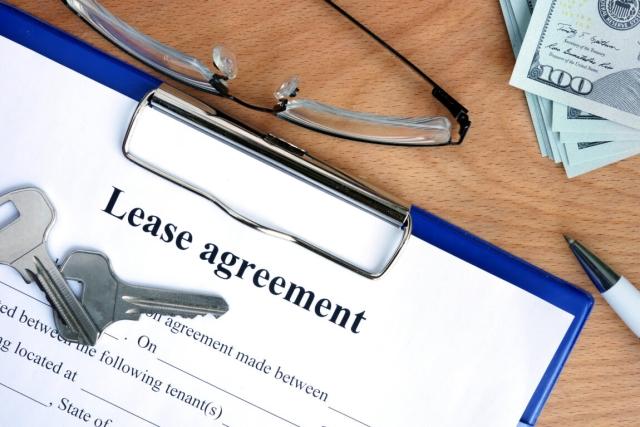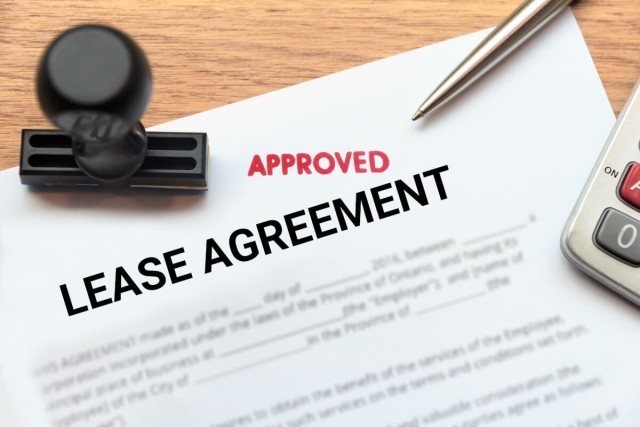Lease agreements are typically seen as providing stability and security for both landlords and tenants. However, unexpected life challenges like job relocations, financial constraints, or space needs can find you in a position where you need to break a lease. Terminating a lease early may seem overwhelming, but understanding your rights and legal obligations can help. With the right knowledge, you can confidently navigate the process and transition smoothly to your next home.
Reevaluate the Situation
Consider the landlord's perspective when thinking about breaking your lease. It's costly to prepare, list, and keep a property vacant while looking for the right tenant. When you signed the lease, you committed to paying the entire amount for the agreed term, even though it's split into monthly payments. This means you might have to cover the remaining balance if you break the lease.
Before deciding to break the lease, explore all alternatives. Negotiate for a lease amendment, consider subletting, or seek help from local housing organizations. These steps can help avoid the need to terminate the lease with its potential consequences.
If moving isn't urgent, wait until the lease ends instead of breaking it. Breaking a lease is expensive and could harm your credit. Unpaid fees may appear on tenant screening reports, making it harder to rent in the future.
Don’t assume that your security deposit covers your last month’s rent. The security deposit covers damages to the apartment and any missed rent payments or unpaid late fees. You’ll still have to pay at least the final month’s rent, and it’s possible you could be held responsible for the cost of re-listing and advertising the rental, as well.
Can You Break Your Lease?
Breaking a lease is not a decision to be taken lightly, as it typically involves legal and financial implications. Before exploring the process of lease termination, it's essential to determine whether you have valid grounds to do so. While lease agreements are legally binding contracts, there are certain circumstances in which tenants may be entitled to break their lease without facing severe penalties. Here are some factors to consider before you break your lease:
Review Your Lease Agreement
Your lease agreement may have a clause about breaking the lease. Often called an early termination clause, this section of your lease outlines what will happen if either party chooses to end the lease early. Depending on state laws and requirements, these clauses vary. It’s possible your lease doesn’t include this clause, but if it does, it outlines exactly how to break your lease early and what fees are involved.
The early termination clause may specify the written notice to be given. This is sometimes 30 or 60 days in advance. It will also state the amount you will be held responsible for, and this amount ranges from two months’ rent to the remaining months’ rent left on the lease.
Some situations make breaking the lease unavoidable, such as being called to active military duty. If this is the case, you are likely protected by the Servicemembers Civil Relief Act, and you won’t have to pay penalties for breaking your lease. Other circumstances may also be covered, such as domestic violence or a disaster that makes your apartment uninhabitable. If you think your situation might be covered, contact a real estate lawyer and find out.
Talk to Your Landlord
Explain your situation and see what options you have. Your landlord may be willing to work with you. For example, if you are being sent out of state by your employer for several months, perhaps your landlord would be willing to consider letting you sublet your apartment until you return. Or, if you must leave to tend to a sick relative, perhaps you can work out a compromise on the required termination fees. Your landlord may consider waiving the termination fees if you find a suitable renter to take over your lease.
Don’t take matters into your own hands – be sure to discuss all options with your landlord. For example, many leases forbid subletting. If you do this without your landlord’s permission, you are in violation of your lease agreement.
Document Everything
After talking to your landlord and determining what the next steps will be, your landlord may write up an agreement. If not, ask for one. You will want this signed and dated. This protects both you and your landlord from any difficulties that could arise from a misunderstanding of what you discussed.
If you must break your lease, be sure to do so responsibly. Talk to your landlord, explain the situation, and be prepared to pay the fees associated with breaking your lease. Your landlord will likely give you some options, and hopefully, you’ll be able to part ways amicably.
What Are the Consequences of Breaking Your Lease?
While breaking a lease may offer a solution to pressing circumstances, it's important to weigh the potential consequences before acting. Lease agreements are legally binding contracts and terminating them prematurely can result in various repercussions. Here are some common consequences tenants may face when breaking a lease:
-
Financial Penalties: One of the most immediate consequences of breaking a lease is financial liability. Depending on the terms of your lease agreement, you may be required to pay a lease break fee, forfeit your security deposit, or cover rent until a new tenant is found. These expenses can add up quickly and impact your budget significantly.
-
Legal Action: Landlords have the right to pursue legal action against tenants who breach their lease agreements. This could involve suing for unpaid rent, damages to the property, or other costs incurred because of the lease termination. Legal proceedings can be time-consuming and stressful and may result in further financial consequences.
-
Negative Rental History: Breaking a lease can tarnish your rental history and make it more challenging to secure housing in the future. Landlords often conduct background checks on prospective tenants, and a history of lease violations or evictions may raise red flags. A negative rental history can limit your housing options and affect your ability to rent desirable properties.
-
Difficulty Obtaining Future Leases: In addition to impacting your rental history, breaking a lease can make it harder to secure future leases. Landlords may be hesitant to rent to tenants with a track record of lease terminations, as it indicates a potential risk of non-compliance or financial instability. This can narrow your housing options and prolong your search for suitable accommodation.
-
Damage to Credit Score: Failure to fulfill your contractual obligations under a lease agreement can have consequences for your credit score. If your landlord reports unpaid rent or damages to credit bureaus, it could negatively impact your creditworthiness and make it harder to obtain loans, credit cards, or favorable interest rates in the future.
-
Difficulty Obtaining References: Breaking a lease can strain your relationship with your landlord, making it challenging to obtain positive references for future rental applications. A landlord who feels aggrieved by a tenant's actions may be less inclined to provide a favorable reference, which can further complicate your housing search in the future.
Considering these potential consequences, breaking a lease should be approached cautiously and only after exploring all available options. If you find yourself in a situation where lease termination is unavoidable, it's essential to communicate openly with your landlord, minimize financial losses, and adhere to any legal obligations outlined in your lease agreement. Seeking legal advice or consulting with housing counselors can also provide valuable guidance tailored to your specific circumstances. By understanding the potential consequences and planning accordingly, you can navigate the lease termination process with greater confidence and mitigate risks to the best of your ability.
Ultimately, breaking a lease should be a last resort after exploring all available options and considering the potential consequences. With careful planning, clear communication, and knowledge of your rights, you can navigate the process with confidence and move towards a more suitable living arrangement. Remember, every situation is unique, and seeking personalized advice from legal professionals can provide valuable insights tailored to your specific circumstances. By empowering yourself with knowledge and resources, you can make informed decisions and navigate the lease termination process with greater ease and confidence.






